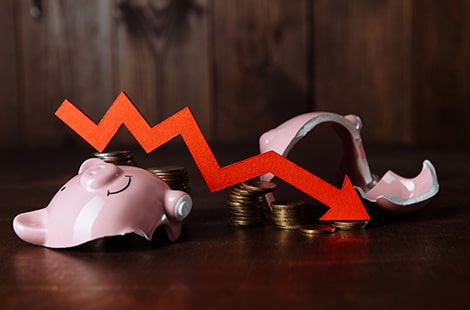Fake air filters are a growing problem in the automotive industry. These counterfeit parts, designed to mimic genuine filters, fail to provide the same level of protection and performance. Using fake air filters can damage your engine, lower efficiency, and increase maintenance costs.
Air filters play a critical role in maintaining engine health by trapping dust, dirt, and other particles before they enter the combustion chamber. A clean and efficient air filter ensures the proper air-to-fuel mixture, contributing to optimal performance and fuel efficiency. Genuine air filters are rigorously tested to meet these standards, while fake ones often fall short.
Risks of Using Fake Air Filters
Inadequate Filtration
Fake air filters are made with inferior materials that fail to trap fine particles effectively. As a result, dust, dirt, and debris bypass the filter and circulate within the vehicle, reducing overall performance and exposing various systems to contamination.
Blockages and Airflow Issues
Poorly designed counterfeit air filters often restrict airflow to the engine, affecting its ability to breathe efficiently. This results in reduced power output, higher fuel consumption, and uneven driving performance. Drivers may experience sluggish acceleration or difficulty maintaining speed.
Faster Wear and Tear
Counterfeit air filters degrade faster due to substandard materials, requiring frequent replacements. Their inability to maintain integrity can affect related systems, increasing overall maintenance costs and vehicle downtime.
Increased Emissions
Counterfeit air filters disrupt the delicate balance of air and fuel required for efficient combustion. This leads to higher emissions of harmful pollutants, which can cause vehicles to fail regulatory standards. Drivers may face fines or the need for expensive adjustments to restore compliance.
How Fake Air Filters Harm Your Engine
Contaminant Ingress
The primary function of an air filter is to prevent harmful particles from entering the engine. Fake air filters allow contaminants like dust, dirt, and debris to infiltrate the system. These particles scratch and erode internal components such as pistons and valves, leading to reduced efficiency and long-term damage.
Combustion Issues
Engines require a precise air-to-fuel ratio to function properly. Poorly designed counterfeit air filters disrupt this balance, causing incomplete combustion. This can lead to misfires, stalling, or rough idling, significantly impacting engine performance and reliability.
Damage to Engine Components
Contaminants allowed by fake filters accumulate in sensitive engine areas, damaging pistons, cylinders, and valves over time. Additionally, debris entering the oil system can compromise lubrication, accelerating wear on critical moving parts and increasing the risk of engine failure.
Overheating and Engine Failure
Blocked or ineffective air filters reduce airflow to the engine, causing it to overheat. Overheating stresses the engine, leading to potential failures during operation. Genuine air filters are designed to manage these conditions effectively, while fake filters lack the durability to provide this protection.
Counterfeiting in the Automotive Industry
Counterfeit air filters are part of a broader problem affecting the automotive industry. According to the Organisation for Economic Co-operation and Development (OECD), counterfeit automotive parts account for a significant share of global counterfeit goods. These fake parts bypass safety standards and are often sold through unauthorized retailers or online platforms.
Fake air filters harm consumers by increasing repair costs and risking vehicle safety. They also damage the reputation and revenue of legitimate manufacturers, highlighting the need for greater awareness and robust anti-counterfeiting measures.
How to Avoid Fake Air Filters
Purchase from Authorized Dealers
Buy air filters from authorized dealers or directly from the manufacturer to ensure authenticity. Authorized sellers follow strict quality control measures and offer warranties.
Verify Packaging and Product Details
Genuine air filters come with proper branding, high-quality packaging, and unique serial numbers. Counterfeit products often have spelling errors, faded logos, or mismatched details. Inspect the product and cross-check serial numbers with the manufacturer.
Examine Build Quality
Authentic air filters are made from durable materials. Fake filters may feel flimsy, have uneven seams, or lack consistent construction. Comparing the filter to the original specifications can reveal discrepancies.
Ennoventure’s Role in Combating Counterfeit Automotive Parts
Counterfeit air filters and other fake automotive components pose significant risks to vehicle performance and safety. To address the growing challenge of counterfeit engine parts, innovative automotive anti-counterfeit solutions have become crucial. Ennoventure leverages AI and cryptography to embed invisible cryptographic signatures into product packaging, enabling easy authentication via smartphones. This ensures the packaging can be verified for authenticity, protecting both consumers and manufacturers from counterfeit risks. By safeguarding the authenticity of automotive parts, Ennoventure helps reduce the prevalence of counterfeit products and builds consumer confidence in the market.
Fake air filters compromise engine health, lower efficiency, and increase maintenance costs. They allow contaminants into the engine, disrupt combustion, and cause long-term damage to critical components. Purchasing genuine air filters from authorized dealers is essential for protecting your engine and ensuring optimal vehicle performance. Prioritizing authenticity helps avoid these risks and extends the life of your vehicle.



